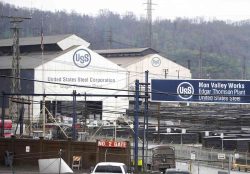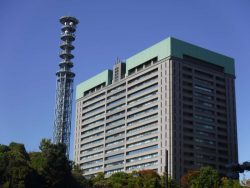Niigata Pref. Students Learn About Agriculture, Climate Change on Texas Trip; Texas Students to Visit Niigata Pref. in August

Niigata students visit volunteer activities at a marshland in Texas.
11:46 JST, May 29, 2025
Ten university students from Niigata Prefecture traveled to Texas in March to learn about agriculture and climate change as part of an exchange program between Japan and the United States.
The Japanese students were able to work with students in Texas during their six-day trip. The Texas students are scheduled to visit Niigata Prefecture this August.
The program is sponsored by the U.S.-Japan Council, which promotes exchanges between the two countries, with the cooperation of Tanaka Sangyo, a Joetsu-based construction company in Niigata Prefecture.
Tanaka Sangyo has been engaged in rice cultivation for about 30 years, growing rice on about 340 hectares. As more rice farmers are leaving the business, the company expanded its rice field by 150 hectares over the past five years by taking over the fields of others who have quit.
The partnership was made through an introduction by the U.S. Embassy in Japan, which had previously worked with the company.
The program started last October with 10 students from universities in Niigata Prefecture, including Niigata University, and eight students from Texas A&M University. After an online workshop, the Niigata Prefecture students went to the United States to learn about measures on tackling climate change.
While in Texas, the Niigata students went to a greenhouse that had automated equipment to manage plant growth, visited a large-scale range and saw crops being grown on the roof of a building in an urban area. The students also saw the effects of drought when they volunteered for marshland conservation activities.
Akiyuki Tanaka from Tanaka Sangyo hopes the exchange will let young people know that, as digitization and automation advance, agriculture can be fun and exciting.
Climate change

Makoto Koide, left, shows a photo he took while visiting a greenhouse in Texas, in March in Niigata Prefecture.
Climate change will heavily affect the agricultural industry in Niigata Prefecture.
As of the end of October, only 4.3% of the Koshihikari variety of rice and only 14.0% of all the rice harvested in 2023 were considered high quality, the lowest ever.
“The price of rice is getting more expensive in Japan, and rice is disappearing from grocery stores,” said Mitsuki Ito, 20, who was a part of the group who went to Texas. “I think the issue [of climate change] needs to be addressed worldwide.”
The students from Texas are scheduled to visit Niigata Prefecture in August, and they will observe the area’s agricultural practices, which take advantage of having both mountains and the ocean nearby.
“The American students might be surprised by how small the scale of Japan’s agriculture is, but I hope they will see the quality of it, too,” said Makoto Koide, a participant from Niigata University.
"JN Specialities" POPULAR ARTICLE
-

Tokyo’s Meguro Ward Office Tour Illuminates Architect Murano’s Masterpiece; Complex Features Japanese-style Rooms, Ponds
-

Snowy Hikes Above 3,000 Meters in Spring Add Appeal to Tateyama Mountain Range in Toyama Pref.
-

Satellites Help Farmers Herd Cattle, Determine Fertilizer Usage; Post-Disaster Efforts Aided from Space
-

Interacting with Goats Spreads Smiles at Firms, Welfare Facilities; Animal Has Spiritual Healing Effect
-

Over 500 People Join Michinoku Coastal Walk Event in Natori, Miyagi Pref.; Tracing Memories of 2011 Earthquake, Tsunami
JN ACCESS RANKING
-

Aichi Rice Production Under Siege from Warming Climate; Record Heat Stunts Crop Growth, Causes Greater Pest Activity
-

Japanese Researchers Develop ‘Transparent Paper’ as Alternative to Plastics; New Material Is Biodegradable, Can Be Produced with Low Carbon Emissions
-

Japan’s Cooperation in Alaska LNG Development Project Emerges in Japan-U.S. Tariff Negotiations; But Industry Concerns Exist
-

Trump: Nippon Steel Will Part Own U.S. Steel, U.S. to Be in Control; Share Distribution, Other Details Remain Unclear
-

Average Retail Rice Price Up for Second Consecutive Week; More Than Double Same Period Last Year




















